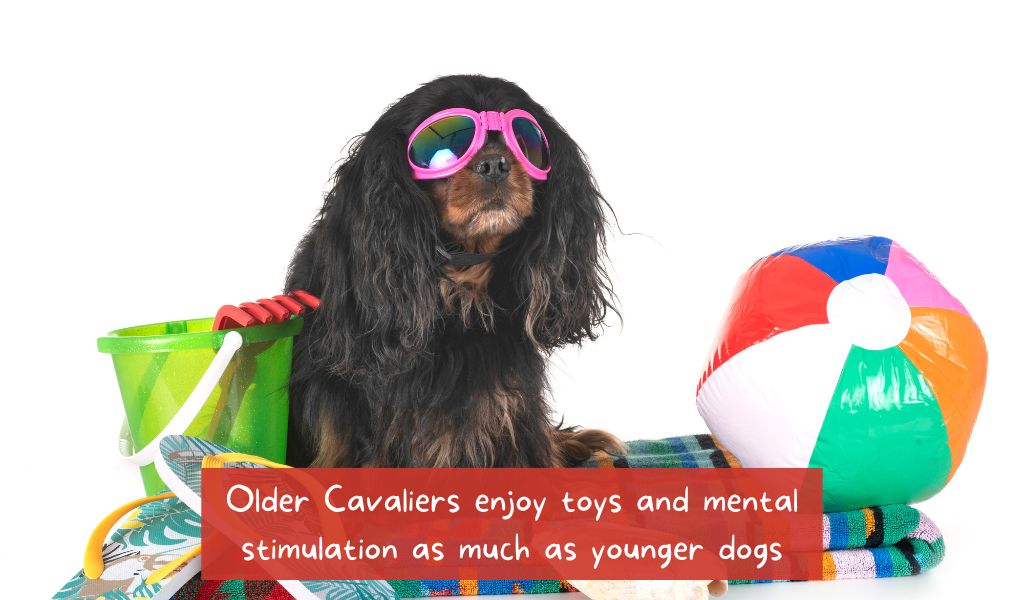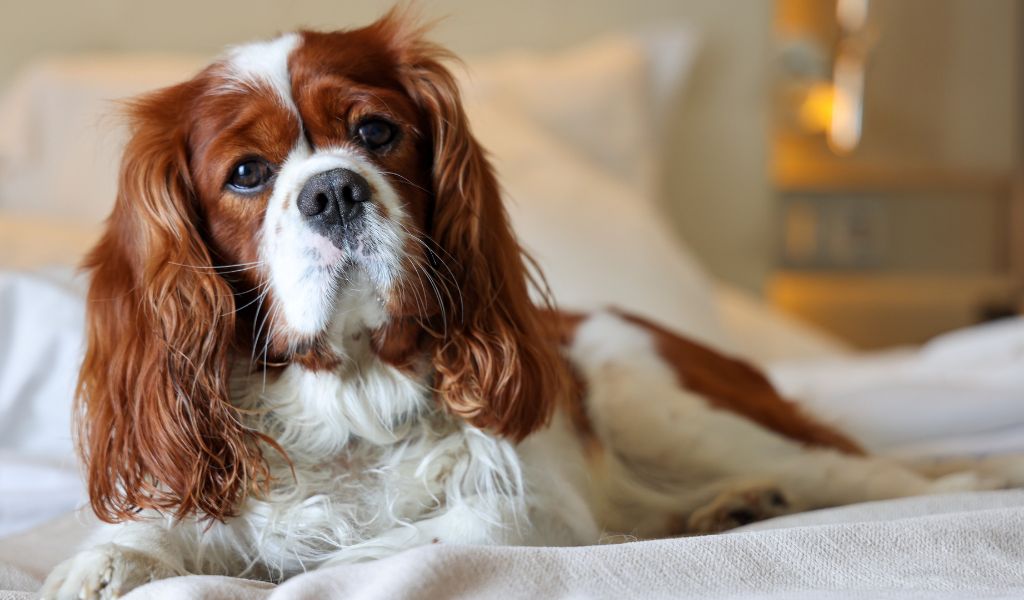Do you have an older Cavalier King Charles Spaniel but are overwhelmed at the thought of taking care of them in their later years?
It can be challenging to know how to best care for a senior dog as they start entering into the twilight years.
In this blog post we will explore the key considerations when living with an older Cavalier King Charles Spaniel – from diet and exercise all the way through to mental stimulation and companionship – providing practical advice about managing your pet’s health in their senior years.
The benefits of having an older Cavalier King Charles spaniel
Owning an older Cavalier King Charles may seem daunting, but the rewards far outweigh any potential issues.
Often this breed of dog is a bit calmer and more settled in their ways than its younger counterparts which, if you have busy a lifestyle, can make them even easier to care for.
Not only that, but their warm and gentle disposition make them ideal companions if you’re looking for a reliable friend who will enjoy going for walks but who will have lower energy levels than a younger dog.
If you are looking to adopt an older Cavalier then they can often easily adapt to almost any living situation, and will happily fit into to most homes with little difficulty.
Common health concerns to be aware of
Owning an older dog means that you need to be aware of any potential medical issues.
The most common health concerns with older Cavaliers include skin problems, joint pain and dental disease.
To help prevent these issues, it is important to take your Cavalier for regular check-ups at the vet’s in order to keep any potential issues in check.
It is also recommended that you give your Cavalier regular baths, as this can help to keep the skin healthy and free of any parasites which may be present in their fur or on their skin.
Regular grooming sessions are also important for keeping their coat clean and free from tangles.

Exercise and diet considerations
As your Cavalier King Charles spaniel gets older, it is important to adjust their exercise and dietary needs accordingly.
Older dogs need a lower calorie diet than younger ones, so make sure you are feeding them food that is specifically tailored for senior dogs.
You may also want to consider giving them glucosamine supplements to help alleviate joint pain, if they start showing signs of stiffness or soreness when moving.
In terms of exercise, you should maintain a regular routine with your Cavalier but be mindful that the intensity and frequency may need to be adjusted as they get older.
Taking them on short walks two or three times a day as well as providing them with mental stimulation throughout the day can be beneficial to their overall health and wellbeing.
Mental stimulation and companionship
Just like younger dogs, it is important for older Cavaliers to receive both physical and mental stimulation in order to keep them healthy and happy.
Introducing new toys, activities and games into their daily routine can help to keep their brains active and stimulated.
It is also beneficial to provide them with companionship, either through a second pet or even just by spending quality time with them yourself.
Talking to your Cavalier and providing them with plenty of love and affection will not only make you both feel better, but will also make for a more enjoyable experience as you bond with your pet.
Nutritional needs specific to aging dogs
As your Cavalier gets older, their nutritional needs will change and it is important to adjust accordingly.
Aging dogs require a higher amount of protein in their diet due to the increased demands on their body.
Senior dog food often contains additional vitamins and minerals which can help to support healthy bones, joints and muscles as your Cavalier grows older.
Adding Omega-3 fatty acids to their diet can also help with joint and skin health, as well as providing additional energy for them to take part in activities.
Finally, as water is essential for all dogs, make sure that you provide them with fresh and clean drinking water every day.
Popular foods for older dogs







Signs that it might be time for a vet visit
It can be difficult to know when it is time to take an elderly Cavalier King Charles for a vet check-up, as the signs of aging can be mild or hard to detect.
However, if some crucial characteristics start to alter, like changes in appetite and sleep patterns, increased thirst and urination frequency, more frequent accidents in the house, intensified vocalizing or aggression, or shifts in activity level that are hard to explain, then it might be a sign that a visit to the vet is needed.
Other symptoms such as weight gain or loss as well as difficulty breathing can also signal health problems which should be taken seriously since they may indicate serious conditions related to age.
When you notice any of these signs in your older dog it’s important to talk with your vet and make sure everything checks out alright.
Final Words
It can be difficult to take care of an older dog, as their needs and limitations can be quite different from those of a younger pet.
But with regular vet visits, proper nutrition, exercise and mental stimulation, you can help your Cavalier King Charles live a long and healthy life.
Also, don’t forget to provide them with plenty of love and affection on a daily basis. After all, they deserve it for the countless years of loyalty and companionship.
By understanding their changing needs, you can ensure that your older Cavalier stays happy, healthy and comfortable in his golden years.




